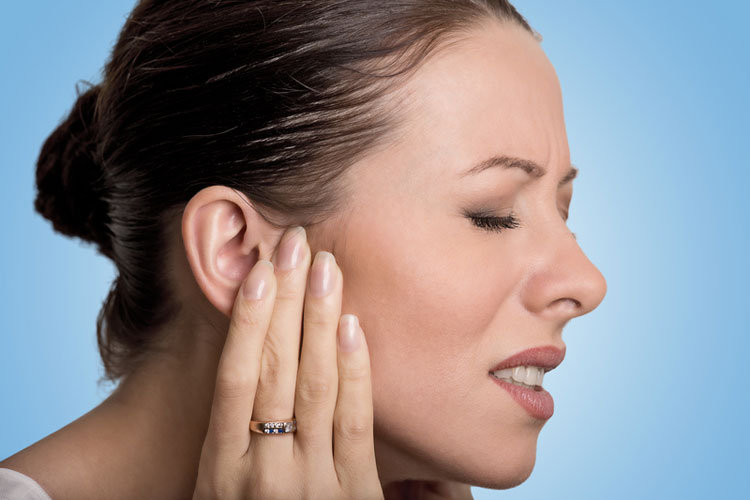5 Things To Know about Ear Pain and Eardrum Infections

Have you ever had an ear infection? If you have suffered ear pain before, then you will understand how terribly painful an ear infection can get. An eardrum infection can be even more painful than an infection of the outer ear canal, usually because the eardrum is inflamed and swollen, stretching the sensitive nerves of the eardrum to result in severe ear pain. In Singapore, at our ENT specialist clinics, we see many children and adults who suffer ear pain and eardrum infections, sometimes leading to eardrum perforation or rupture.
Eardrum infections more commonly occur in children as their Eustachian pressure tubes are relatively immature and hence less easily open to equalise the pressures behind the ear end and nasal end of the Eustachian pressure tube structure. If your Eustachian pressure tube doesn’t open at the right time when it should, then a tremendous amount of pressure can build up to cause excruciating ear pain. There is also a risk of fluid forming behind the eardrum, leading to a persistently blocked ear sensation and ear pain.

Eardrum infections are best treated early with oral antibiotics, painkillers and perhaps decongestants. Eardrops are usually not very helpful for eardrum infections. If your eardrum perforates, then ear pain will subside but then you might noticed a persistent ear discharge, sometimes smelly as this is infected fluid which was trapped behind the eardrum, and this is now draining through the “hole” in your ruptured eardrum. But don’t worry too much yet, the perforated eardrum can still help upon its own, provided the underlying infection clears up. Usually, a ruptured eardrum may take on average about 6-8 weeks to fully close up, if it’s going to heal up on its own. So that means, if you have been waiting 3-4 months for it to heal on its own, but the eardrum perforation still looks the same without any improvement then it is unlikely that it will heal up on its own. Which means you might need surgery to repair the ruptured eardrum, a procedure called a tympanoplasty or myringoplasty, or simply “eardrum repair surgery”!
So what are the 5 important things to know about ear pain and eardrum infections then? Here are Dr Annabelle Leong’s 5 tips on what to do if you suffer ear pain and/or eardrum infections:
- Never fly if your ear feels blocked or is painful. There is a real risk of eardrum perforation or rupture during the flight, especially during the landing phase of the flight as it will be very difficult for you to “pop” your ears to equalise the ear pressures.
- Never dig your ears, even when they feel blocked, because this will just worsen things. If it’s impacted earwax blocking your ear, the last thing you should do is to go dig your ear with cotton buds because it will just end up pushing the already impacted ear wax even deeper into your ear canal, pushing even more onto your delicate eardrum.
- Eardrum infections commonly arise from a recent bad cold or the flu, or some other viral upper respiratory tract infection, as too mucus and soft tissue congestion at the back of your nose affects the Eustachian tube function. Bacteria also may spread from the nose via the Eustachian tube to the eardrum from internally, causing severe earache and even fever. It may be helpful to try taking an oral decongestant such as Telfast-D or Zyrtec-D, or spraying the nose with a topical decongestant such as Afrin, Iladin or Otrivine sprays, which can be bought at any pharmacy without a doctor’s prescription. Persistent ear pain symptoms despite this, mean it’s time to visit your friendly doctor or ENT specialist in Singapore to find out why your ear infection isn’t getting better!
- Do not wash your ear inside by rinsing with water because either it probably won’t help or it makes things much worse, by causing further inflammation of your poor ear. It’s better to keep your ear dry at all times and avoid swimming. You can easily prevent water from entering your ear during showertime, by putting part of a cotton wool ball to sit in your outer ear. Applying some vaseline to the cotton wool ball can help it to sit better in your ear.
- Avoid wearing earphones, ear plugs and ear pieces if your ear hurts because this will just cause further inflammation of the ear canal skin. Blasting your inflamed eardrum with noise from earphones will also just cause more ear pain. Your family doctor can prescribe some eardrops for you if they think it might help to soften any impacted earwax but if they examine your ear to find it’s an eardrum infection, then you would likely need a course of oral antibiotics such as Augmentin, as eardrum infections tend to be bacterial.
Share this blog via:
